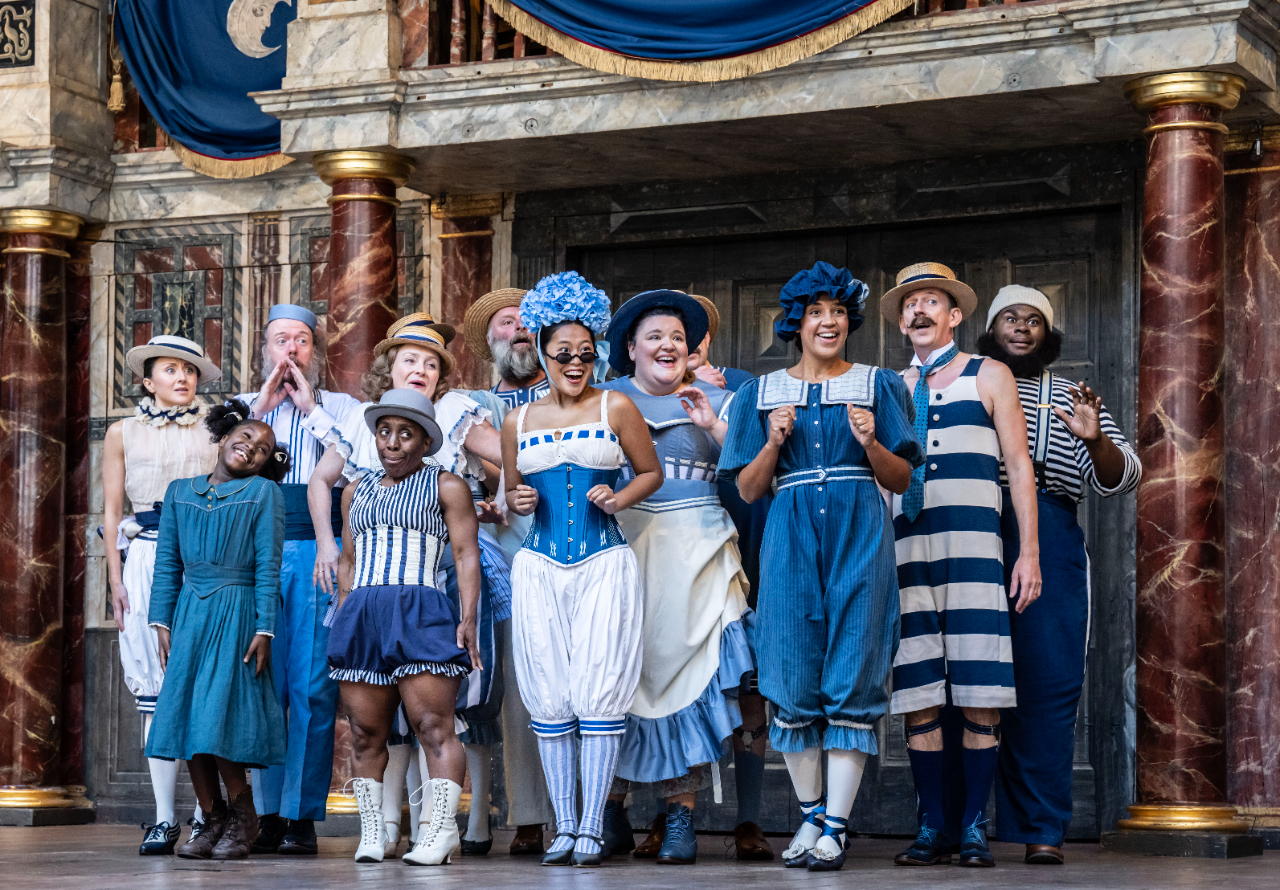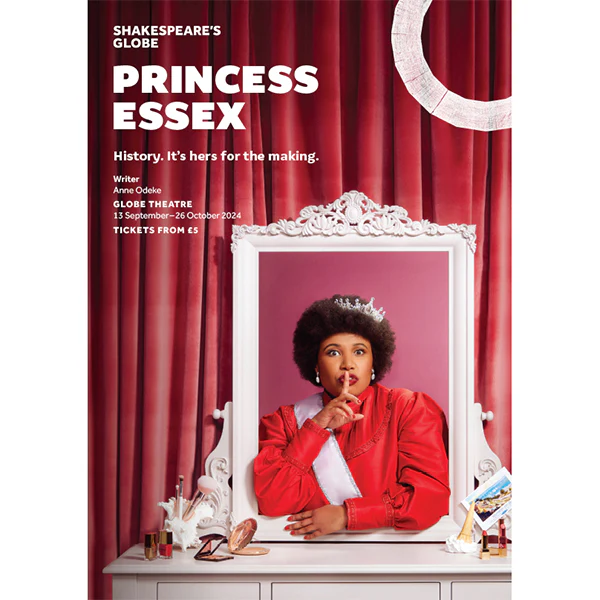Princess Essex at Shakespeare’s Globe

There is never a dull moment in Princess Essex, Anne Odeke’s action-packed debut play set in 1908, Southend-on-Sea. Based on the true events of the first woman of colour to enter a beauty pageant in England, the play digs deep into this little-known piece of history, confronting why a woman who called herself Princess Dinubolu – and claimed to be a Senegalese princess – might’ve felt compelled to disguise her true identity. Odeke doesn’t shy away from interrogating how ideas of beauty and belonging are contextualised by systemic oppressions such as race, class and gender, prompting audiences to reflect on the world we live in and sit with the uncomfortable truths that find us – much like Shakespeare did.
Princess Dinubolu is reimagined here as Joanna, a biracial Essex woman who refuses to let Edwardian society keep her small, Odeke herself taking on the starring role. As a maid in service to the bigoted but frantic Mrs Bugle (Lizzie Hopley), Joanna is tasked one evening with escorting her to the Kursaal amusement park, but the disturbing spectacle of a “pygmy” tribe member, the Great Batwa (Alison Halstead) being paraded like a zoo animal pushes her to quit her job for a mission to “save” him. But when she learns that Batwa is far more intelligent than she credited him for, their candid discussions about how they grapple with and exist in their Blackness bring them closer. The understanding that they reluctantly find in each other truly forms the heart of the play and validates Joanna’s decision to step into her agency and enter the Kursaal beauty pageant as her pompous creation: Princess Dinubolu.
Under Robin Belfield’s direction, the production carefully balances fun with heaviness. Filled with spirited songs brought to life by the talented band – including an unforgettably raunchy one from King Edward VII’s (John Cummins) about his endless “shags” – yet the play knows when to embrace silence. One scene where Joanna as Princess Dinubolu confronts the King about his colonial excesses takes a distressing turn that feels all too real. Elsewhere, Harriet the maid (Yasmin Taheri) crashes the pageant with an exuberant “votes for women” protest that has the audience roaring with delight, but that cheer instantaneously dwindles as she’s violently – and all too inevitably – dragged off the stage.
The play disperses subplot action throughout, all while keeping Joanna’s story front and centre. Flitting between Mr and Mrs Bacon’s (Matthew Ashforde and Jamie-Rose Monk) desperate attempts to manage the debt from running the Kursaal to the spoiled Mayor’s daughter Violet’s (Eloise Secker) growing infatuation with her working-class maid Harriet, to farcical town council meetings, a lot of chapters aren’t closed, but this isn’t their story. After all, life in the seaside town moves fast, comically underscored by the nonstop costume changes from start to finish – impressively managed by costume supervisor Isobel Pellow.
Princess Essex is a celebration and reckoning of humanity, championing the importance of making others feel seen – especially when being seen by those who look like you can be transformative. This love letter to Southend, Princess Dinubolu and Black British legacy not only uncovers forgotten history but also makes its own, proudly standing as the first play written and performed by a woman of colour at the Globe.
Ruweyda Sheik Ali
Photos: Johan Persson
Princess Essex is at Shakespeare’s Globe from 13th until 26th September 2024. For further information or to book visit the theatre’s website here.

























Facebook
Twitter
Instagram
YouTube
RSS